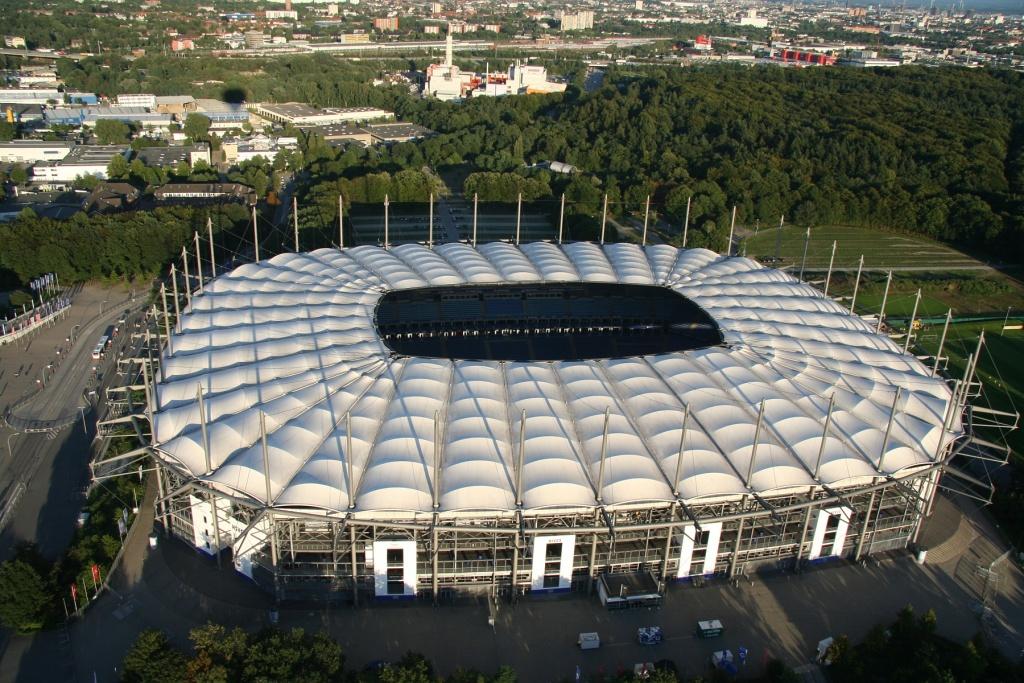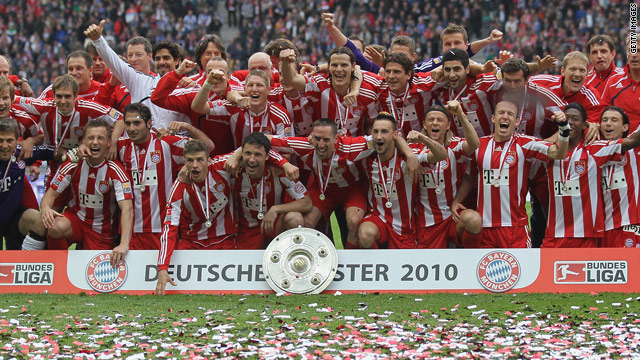By David Gold
November 4 – Philipp Hasenbein (pictured), the managing director of SPORTFIVE Germany, claims that the building of new stadia has been a key driving force behind the growth of the Bundesliga and German football in recent years.
SPORTFIVE Germany belongs to the SPORTFIVE Group, one of the world’s leading sports rights marketing companies, and Hasenbein will be discussing the German top flight at the International Football Arena (IFA) conference in Zurich on November 7 and 8.
It is a good time to be a German football fan – the national side has performed well in international tournaments in recent years, reaching the final of the 2008 European Championships and has made it to at least the semi-finals of the last three World Cups.
Though they were not quite good enough to defeat a Spanish team who are set to go down as one of the greatest in history, it is still a remarkable achievement, and next season the Bundesliga will have four Champions League spots available to its teams for the first time.
This comes after overtaking Italy in the UEFA coefficient rankings, and Hasenbein identifies a financial explanation as a key part of the league’s progress.
“It is a mixture of things; for sure it is a between financial power and sports results,” he told insideworldfootball.
“Even earlier [than the 2006 World Cup] in 2000 we thought at German football clubs to earn new money and find new revenue streams.
“The stadium was one of the first they saw.
“They were the first country to invest heavily in stadium infrastructure.
“We have had about 25 new stadiums built between 2000 and 2011 in Germany.
“That means new revenues in terms of hospitality, naming rights and advertising.”

Hasenbein points out that even mid table teams have benefited, with Hamburg a prime example – they have increased their revenues more than 10 fold since the turn of the century.
He also identifies a strong regulatory system, which prevents teams from spending too much and building up unsustainable debts as a key part of the Bundesliga’s recent success.
“Germany has a strong licensing system so football clubs can only pay as much money as they make,” Hasenbein said.
“They must have equal cash flow over the season to guarantee they can always pay their bills, this system helps them to be competitive.”
They were also, as Hasenbein points out, helped by some impressive results on the pitch too, particularly in last season’s Champions League.

Sampdoria were knocked out by Werder Bremen in the qualifying round of the competition, and though Bayern Munich were beaten by holders Inter Milan, the Italians were then thrashed by Schalke, even though they had been performing poorly in the Bundesliga.
Though Hasenbein would not comment on the state of other leagues, in particular the Premier League and La Liga where huge debts are par for the course for a number of teams, he said that he was hopeful the UEFA financial fair play rules would be a success.
This new initiative begins this season and requires clubs to balance their books over rolling three-year periods to compete in European competitions.
Though there is an allowance of £40 million ($65 million/€46 million) for the first three years being analysed, in the long term teams won’t be allowed to continually lose money, and must prove to UEFA that they can balance their books.
“The German model shows it is working and they have a bright future,” Hasenbein said.
“It is up to the leagues and how strong they are – if they can put these regulations and right systems in place.
“I am keen to see if financial fair play is working.
“I hope UEFA found a system which is transparent and accepted by clubs.”
German clubs are not, however, immune to racking up debt, as current champions Borussia Dortmund showed when almost falling into bankruptcy in 2005, less than a decade after winning the European Cup.
But the financial state of the Bundesliga seems decidedly rosier than the Premier League and La Liga, who between them have a combined debt of €6.4 billion (£5.7 billion/$9.2 billion).
However, Bayern Munich tend to dominate the German game, and have not gone two years without winning the league since 1996.
The flip side of that is that the identity of the league champions can be more unpredictable than other major leagues, where the same two or three teams will usually always claim the title.
In Germany, Borussia Dortmund, Wolfsburg and Stuttgart have won the league in the last five years, with Bayern claiming the title twice, a level of competitiveness matched only by France among the top European leagues.

It is for this reason that Hasenbein is not concerned by the general dominance Bayern exert over the German game.
“In terms of revenues I would guess Bayern have double the amount of the next team like Schalke or Wolfsburg or whoever,” he said.
“That means they can always pay double price for every player.
“It’s always very interesting in Germany – there are different teams who have a chance to win and every week there are results which are unexpected.
“I think that is different from other leagues, you don’t know the result of the next weekend.
“It is not like in England, Spain or Italy where you know who will normally win.”
The chief of SPORTFIVE Germany puts this down to the passion for the game in Germany, where he says that football is not just the most popular sport, but has an importance far greater than in many of their major European rivals.
“Football is not only the number sport in Germany, but number one two and three,” Hasenbein said.
“Football is more highlighted in Germany than other European countries.
“I have the feeling for example in Italy they like to talk and watch football but don’t have the same patience to go to the games.”
And in this, Hasenbein is backed up well by statistics, which show that the Bundesliga is the best attended league in Europe, with an average attendance of 42,101 at matches last season.
With huge support and without the debts that constrain some of Europe’s top leagues, as well as the looming prospect of an economic downturn across the continent, the Bundesliga is well placed to continue its rise in the European pantheon.
Contact the writer of this story at zib.l1743737507labto1743737507ofdlr1743737507owedi1743737507sni@d1743737507log.d1743737507ivad1743737507
